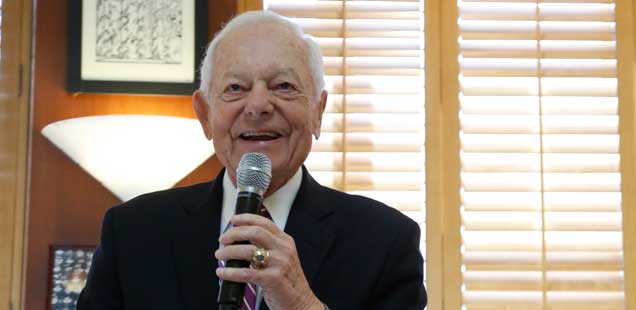The Shorenstein Center hosts a weekly speaker series during the academic year, as well as other special events. With the semester coming to a close, we look back at the perspectives shared by our visiting speakers and fellows, who discussed some of today’s most pressing topics.
Find audio and video for more events in our archive, and check back in January for a list of spring events.
Election 2016
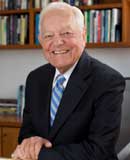 Bob Schieffer: “They say that every election is the most crucial election in modern history. I think this one may well be.”
Bob Schieffer: “They say that every election is the most crucial election in modern history. I think this one may well be.”
Bob Schieffer, Walter Shorenstein Media and Democracy Fellow, veteran CBS reporter and former moderator of “Face the Nation,” discussed the corrosive effects of money in politics and his outlook for the 2016 presidential election. He said that the current gridlocked political environment is symptomatic of the outsized role of money in politics, and represents “a complete breakdown in our electoral system.” Frustration with this current state of affairs has created an opportunity for outsider candidates such as Donald Trump and Ben Carson. Schieffer said it’s “conceivable” that Trump could win the Republican nomination, or run as an independent without it. Read more and listen to audio.
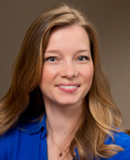 Kristen Soltis Anderson: Republicans need to “make a case that they understand the new ways that Americans are living, and have policies that are adapted to that reality.”
Kristen Soltis Anderson: Republicans need to “make a case that they understand the new ways that Americans are living, and have policies that are adapted to that reality.”
Kristen Soltis Anderson, co-founder of Echelon Insights, an opinion research, data analysis and digital intelligence firm, discussed the divide between the Millennial generation and the Republican Party. Although she said that young voters are “not enamored with the Republican Party,” they are also disappointed in the Democratic Party and disillusioned with institutions and partisanship in general. She discussed the need for the party to adapt to a more diverse demographic, and to focus on making government more efficient and effective, rather than “getting rid of the government altogether.” Read more and listen to audio.
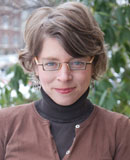 Jill Lepore: “Polls don’t take the pulse of American opinion. They raise it.”
Jill Lepore: “Polls don’t take the pulse of American opinion. They raise it.”
Jill Lepore, David Woods Kemper ’41 Professor of American History at Harvard University and staff writer for The New Yorker, delivered the 26th annual Theodore H. White Lecture on Press and Politics. She discussed the provocative idea that overreliance on polling may actually be harmful to democracy, rather than helpful, which she also covered in a recent New Yorker article. The discussion continued the next morning with Candy Crowley, former anchor and political correspondent, CNN and Fall Fellow, Harvard IOP; Peter Hart, pollster for NBC News and The Wall Street Journal; and Gary Younge, columnist The Guardian. Watch the panel discussion video.
ISIS
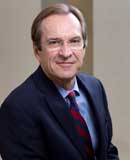 David Ensor: “Hard power alone will not resolve our problems.”
David Ensor: “Hard power alone will not resolve our problems.”
After the November 13 Paris terror attacks, the fall 2015 Joan Shorenstein Fellows discussed the attacks and ISIS. The panel included David Ensor, former director of Voice of America; Marie Sanz, Lima, Peru bureau chief, AFP; and Paul Wood, foreign correspondent, BBC. Ensor called for an increase in the use of soft power in the fight against terrorism, particularly through media outlets such as Voice of America. Sanz called for policymakers and the media to address underlying problems such as alienation and racism that are causing European-born Muslims to see ISIS as a good option. Wood discussed some of the common narratives about ISIS he has seen in the media recently, which he identified as fallacies. Read more and listen to audio.
Refugee Crisis
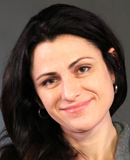 Maria Sacchetti: “That moment will never leave me – of her trying to show me the life she had and why she was running away.”
Maria Sacchetti: “That moment will never leave me – of her trying to show me the life she had and why she was running away.”
Maria Sacchetti, who covers immigration for The Boston Globe, shared her experiences reporting on the international refugee crisis in Europe, and discussed the importance of local coverage of international stories. Sacchetti and photographer Craig F. Walker traveled to the Greek island of Lesbos to report on the refugees as they arrived onshore. They then traveled north to Macedonia, Serbia, Croatia, Hungary, Austria, and Germany, following the path of refugees and telling their stories in a recent Boston Globe series. Sacchetti described some of the harrowing sights she witnessed while reporting, from babies in overcrowded rafts wearing unsafe lifejackets, to people collapsing during journeys that crossed multiple borders. Read more and listen to audio.
Race Relations
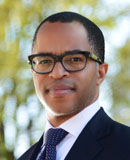 Jonathan Capehart: “Before this year, the nation always found a way to dismiss, discount, or even disbelieve the complaints that African Americans had.”
Jonathan Capehart: “Before this year, the nation always found a way to dismiss, discount, or even disbelieve the complaints that African Americans had.”
Jonathan Capehart, a member of The Washington Post editorial board, writer for the PostPartisan blog, and MSNBC contributor, discussed how bringing social problems and individual stories to light was instrumental in furthering both the Black Lives Matter and marriage equality movements. With videos of the deaths of Eric Garner, Tamir Rice, and many other instances of police brutality being recorded and released, “we all got to see what Blacks had been complaining about and demanding that the entire nation see, for generations,” said Capehart. Read more and listen to audio.
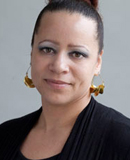 Nikole Hannah-Jones: “My role is to expose these things to people who can and should do something about it.”
Nikole Hannah-Jones: “My role is to expose these things to people who can and should do something about it.”
Nikole Hannah-Jones, staff writer for The New York Times Magazine, discussed her reporting on segregation and discrimination in education and housing, as well as the media’s broader coverage of racial issues. Rather than simply pointing out that a disparity exists, or covering a breaking news incident, Hannah-Jones said her work takes a deeper dive, investigating how “inequality is explicitly and intentionally maintained through social policy.” She also discussed the implications of a lack of newsroom diversity. That the information contained in the Department of Justice’s report on Ferguson had to come from the Justice Department, instead of the local media is “very telling,” she said. Read more and listen to audio.
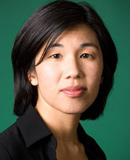 Nicole Wong: “We are overwhelmingly jailing the most vulnerable people in our society.”
Nicole Wong: “We are overwhelmingly jailing the most vulnerable people in our society.”
A panel with Nicole Wong, Clarence Wardell, Cynthia Rudin and Nick Sinai discussed how technology and big data can help solve problems in the U.S. criminal justice system. Nicole Wong, former U.S. Deputy CTO, who has also worked for Google and Twitter, opened the panel with historical context: one of the pioneering data scientists in criminal justice was African-American journalist Ida B. Wells, who used data from newspaper articles in the late nineteenth century to disprove that lynching was primarily in response to rapes and murders. She also discussed the need to improve social services, rather than jailing people with addiction and mental health issues. Clarence Wardell, a member of the White House U.S. Digital Service, discussed the president’s Police Data Initiative, which is collaborating with local police departments to release data sets about policing – such as citizen complaints, traffic and pedestrian stops, and use of force incidents – to help communities better understand policing in their neighborhoods. The panel also discussed topics such as the implications of police body cameras, and how to build trust between communities and the police. Read more and listen to audio.
Campus Free Speech
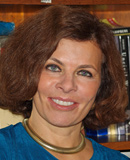 Nadine Strossen: Students are “too often granted safety from ideas, which is antithetical to their education.”
Nadine Strossen: Students are “too often granted safety from ideas, which is antithetical to their education.”
Nadine Strossen, John Marshall Harlan II Professor of Law at New York Law School and former ACLU president, delivered the eighth annual Salant Lecture on Freedom of the Press, where she expressed her concerns that the over-regulation of sexual expression on college campuses is having a chilling effect on academic freedom. Strossen argued that university sexual harassment policies increasingly go well beyond the Supreme Court’s definition of sexual harassment, “extending to speech with any sexual content that anyone finds offensive.” She cited numerous examples of repression of campus free speech that have resulted from broad university sexual harassment policies, and also touched upon the topics of safe spaces and trigger warnings. Read more and watch the video.

